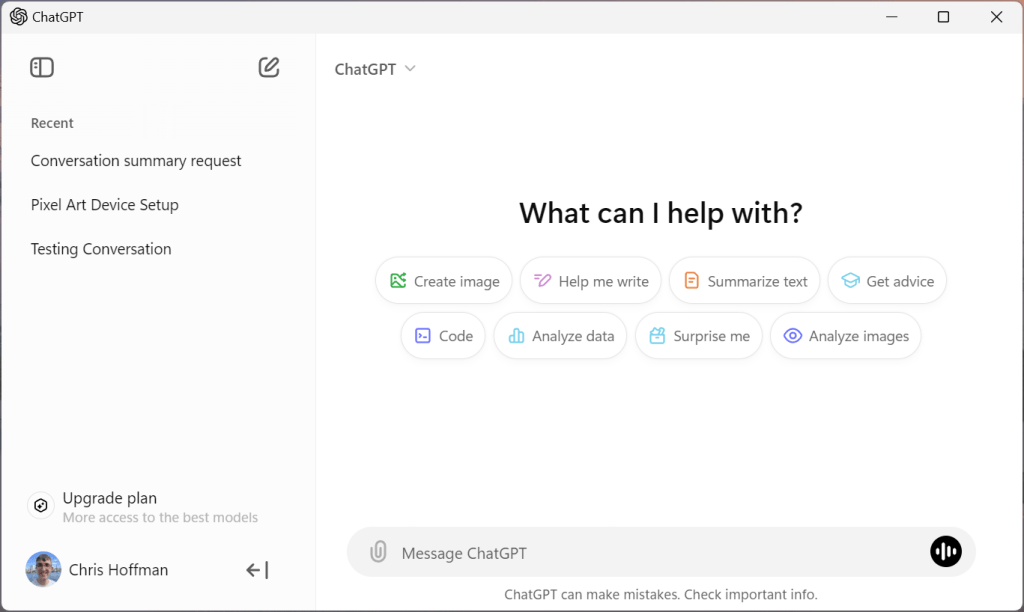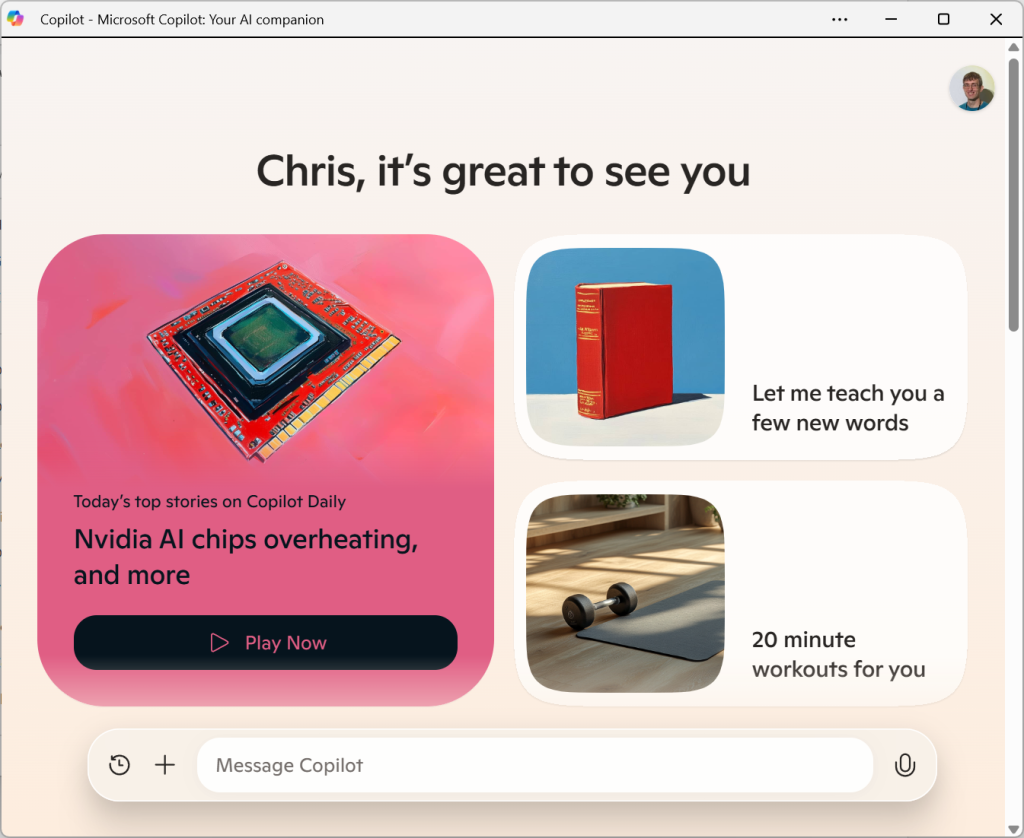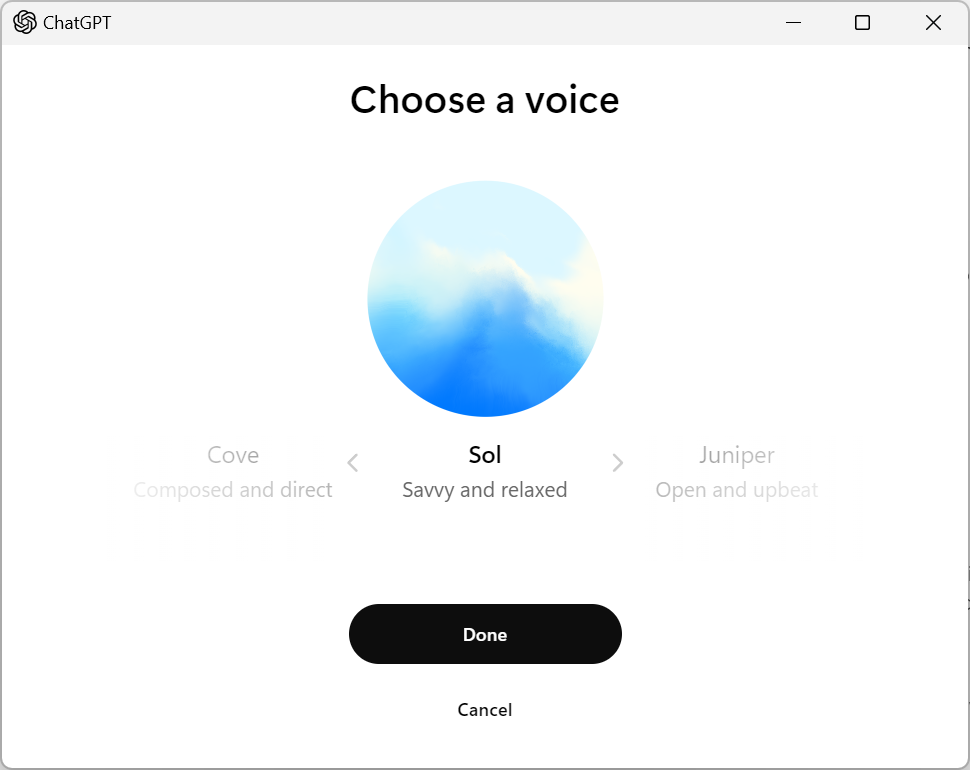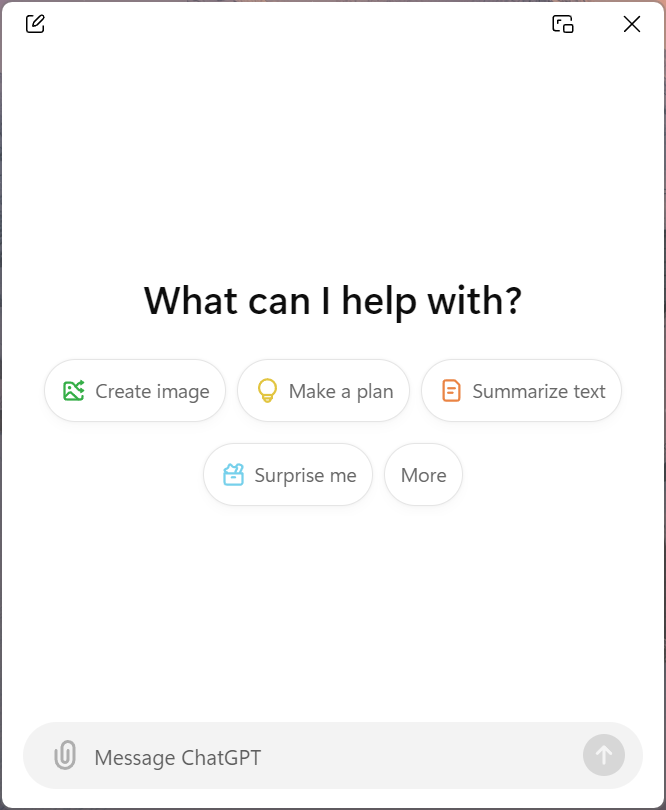Microsoft’s Copilot AI assistant appears to be transforming into a chatty AI sidekick, and I’ve seen quite a few Copilot users who aren’t happy about it. Thankfully, there’s now another option for anyone interested in using AI purely for productivity — a full-featured ChatGPT app for Windows PCs.
Even at launch, ChatGPT’s Windows app is already a better productivity tool than Copilot. It’s quite a setback for Microsoft’s AI assistant — which, when it first launched as Bing Chat, had a more powerful AI model than ChatGPT and offered features that went beyond what ChatGPT offered, such as the ability to search the web.
Things have certainly changed.
Want to stay on top of the latest Windows PC features — AI and beyond? My free Windows Intelligence newsletter delivers all the best Windows tips straight to your inbox. Plus, you’ll get free Windows Field Guides as a special welcome bonus!
Meet ChatGPT’s new Windows app
OpenAI technically launched its ChatGPT app for Windows in October. But at the time, the ChatGPT Windows app was only for paying ChatGPT subscribers. Now, it’s free for anyone to use — including free ChatGPT users.
That means you can now get ChatGPT’s Windows app from the Microsoft Store, whether you’re paying for the premium version of the service or not. The app runs on both Windows 11 and Windows 10 PCs. Once you launch it, you’ll have to sign in with an account. (The web-based version of ChatGPT doesn’t require an account, but the desktop app does.)

Chris Hoffman, IDG
(While I’m focusing on Windows here, it’s worth noting that official ChatGPT apps are also available for Mac, Android, iPhone, and iPad.)
ChatGPT’s app is just like Copilot — but better
Under the hood, both Copilot and ChatGPT use much of the same technology. While Google’s Gemini assistant uses Google’s own AI models, Microsoft’s Copilot uses OpenAI’s ChatGPT models — along with something Microsoft calls the “Microsoft Prometheus model.”
Comparing the two, you’ll first notice how similar the interface is. But ChatGPT feels more like a more focused productivity tool, whereas Copilot feels like it’s trying to be more friendly and approachable. Copilot has pastel colors, lots of graphics, and greets you by name with requests about how your day is going.

Chris Hoffman, IDG
For example: Both ChatGPT and Copilot offer voice chat. When I click the voice chat button in ChatGPT, I hear silence — the AI model won’t respond until I speak to it. When I click the voice chat button in Copilot, I hear a friendly “Hey Chris! How’s your day going?”
It really makes me wonder: Were few people using Copilot in Windows? Did Microsoft have to redesign it to make it more approachable?

Chris Hoffman, IDG
ChatGPT’s app also beats Copilot when it comes to working with files:
- Copilot lets you drag and drop image files to upload them — but that’s it.
- ChatGPT lets you drag and drop PDF files, Word documents, Excel spreadsheets, PowerPoint presentations, and more to the ChatGPT app to upload them and ask questions about them.
It’s just a much more powerful interface. ChatGPT offers more flexibility with its built-in hotkeys, too:
- To launch Copilot, you’ll need a new-ish laptop that comes with a Copilot key on its keyboard. (Microsoft used to let the Windows+C hotkey launch Copilot, but that’s been removed.)
- To launch ChatGPT, you can press Alt+Space — or you can change this shortcut to anything you’d prefer in the ChatGPT app’s settings. (If you have Microsoft PowerToys installed, the Alt+Space shortcut may launch the PowerToys Run launcher instead. You’ll need to change the hotkey for either tool.)
If you do have a laptop with a Copilot key, you’ll be able to go into the Settings app in Windows and tell Windows to launch the ChatGPT app instead of the Copilot app when you press it.

Chris Hoffman, IDG
ChatGPT also offers more flexibility when it comes to working with saved conversations:
- Copilot will let you start a new conversation, if you like — but that’s it.
- ChatGPT lets you start new chats, and it also lets you switch to recent chats you’ve used right from its sidebar.
Some features are similar. Both Copilot and ChatGPT can search the web for you to find up-to-date information. Neither can search the web while you’ve having a voice conversation, however — hopefully that’ll arrive in the future.
Both ChatGPT and Copilot offer different answers, too. You should experiment with both to see which best fits your needs. However, in my testing, I found that ChatGPT was more verbose in its responses — in a good way. Since the update where Copilot started trying to be your best friend, Copilot has been giving shorter responses with a focus on follow-up questions for you, to keep the conversation going.
Copilot Pro still beats ChatGPT for Office integration
For all of ChatGPT’s advantages, Copilot does still have one trick up its sleeve: If you pay for a $20 per month Copilot Pro subscription, you get access to Copilot AI integration in Microsoft Office apps like Word, Excel, PowerPoint, and Outlook.
If this is a feature you like, Copilot is unbeaten. ChatGPT can’t get its hooks into Office apps directly. And it’s a good argument for paying Microsoft’s $20-per-month Copilot Pro subscription rather than OpenAI’s $20-per-month ChatGPT Plus subscription if you’re going to be spending money on a premium AI chatbot subscription.
But for people who aren’t spending any money, ChatGPT is a better productivity tool.
I haven’t found it worthwhile to spend $20 a month to use Copilot in Office apps, although I use Microsoft Word and Excel all the time. But everyone has different workflows, and some professionals are finding it to be useful.
ChatGPT is more of a productivity tool than Copilot
I haven’t covered every option in the ChatGPT app here. In general, ChatGPT has more options and feels like more of a productivity tool, while Copilot feels more like it’s trying to be the new ELIZA. (ELIZA was a chatbot from the 1960s. It was a mock therapist that asks questions like “How does that make you feel?”)
ChatGPT also offers more for free, for anyone whose company isn’t already footing a premium subscription. For example: ChatGPT lets you upload Office documents to analyze them; on Microsoft’s side, that feature requires the $20 per month Copilot Pro subscription to do the same thing in Word or other Microsoft 365 apps.
And, again, Copilot refuses to let you launch it with a hotkey — unless you buy a new PC that comes with a Copilot key; ChatGPT lets you choose your own key.
ChatGPT pulls ahead — for now
Is the race over? Of course not. Remember, when Microsoft launched Bing Chat, it surpassed ChatGPT. Bing Chat originally had more advanced AI models that only came to ChatGPT later. Microsoft could improve the ChatGPT app and integrate it better with Windows — currently, it’s really just a web app. And Microsoft could create its own AI models and use them with Copilot.
But, for now, ChatGPT is in the lead here. Windows users who rely on ChatGPT — or Windows users who just want a more powerful AI chatbot app than what Microsoft is delivering with Copilot — should install the app and give it a look.
Want to learn about the latest Windows features and apps that can boost your productivity? My free Windows Intelligence newsletter delivers all the best Windows tips straight to your inbox.

